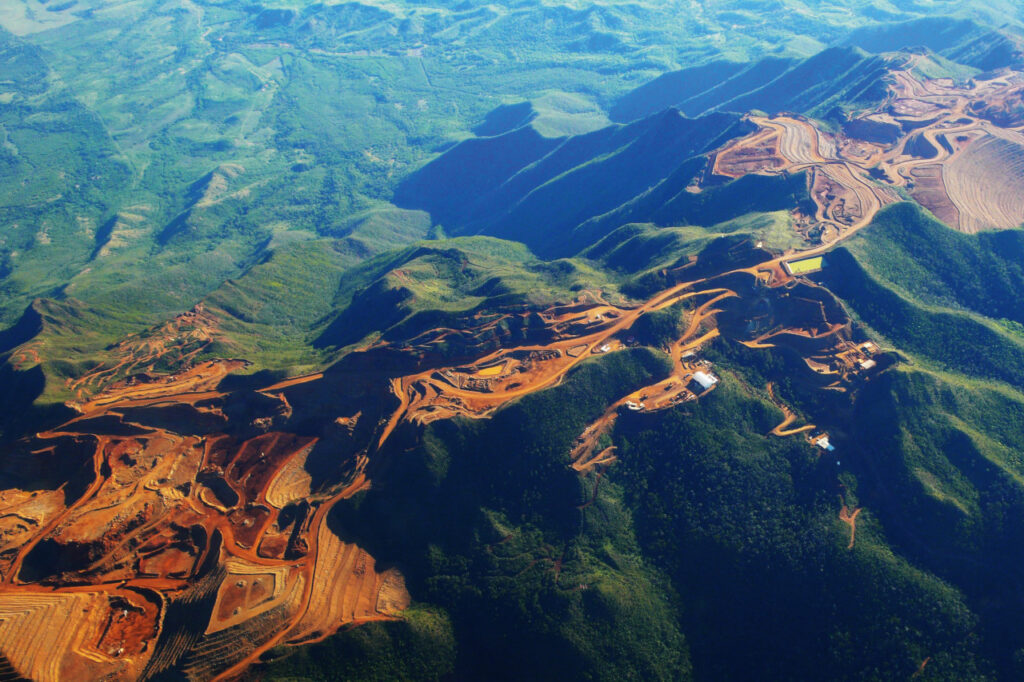[LUM#8] “What remains of the wilderness?”
Since the end of the 20th century and the emergence of evidence linking ecological crisis to human activity, the protection of biodiversity has been at the heart of public debate. But what does this concept of biodiversity actually mean? Philosophy has taken up this question, inviting us to rethink our relationship with nature.

The concept of biodiversity emerged in the 1980s. This term gradually replaced that of nature in the discourse of politicians, scientists, and activists. For Virginie Maris, a philosopher at the Center for Functional and Evolutionary Ecology, this change in vocabulary reflects "a profound shift in our relationship with the environment, abolishing the boundary between humans and nature. A boundary that, according to the researcher, "has always functioned as a pivot of Western thought, but also as a thorny problem." Indeed, how can we conceive of man's place within this opposition?
“A thornyissue”
The concept of biodiversity will completely blur the boundary between nature and culture by integrating humans into nature and removing "the need to refer to something that is other than or external to humans. What is of interest here is the diversity of life.The theoretical distinction between what is the result of human activity and what is independent of it is no longer really relevant."
Paradoxically, the term biodiversity has also distanced us from nature, relegating its protection to a more scientific, "more technicalrealmof management by experts. This gradually disconnects people from the many relationships they have with nature."
Nature under surveillance
The philosopher first observes this shift semantically in expressions such as "natural heritage management" and "ecosystem service optimization," in other words, the benefits that humans derive from ecosystems. But it can also be seen in the emergence of mechanisms such as offset banks and environmental accounting. "Since 2000, the issue of nature conservation has been reframed in economic terms. We are moving from responsibility to accounting. By changing the words, we are also changing, sometimes imperceptibly, the way we approach these issues."
This change is also being driven by the explosion of digital technologies and big data, which, according to the philosopher, can take the form of surveillance of nature. "We can equip all large birds of prey with GPS or GoPro cameras, we can put sensors everywhere, but this raises the question of what we are really trying to achieve. Are we trying to protect nature or create total transparency in the world around us, in a kind of delirium of absolute control?"
The Age of Man
And what about cloning extinct species from DNA fragments or artificial insemination programs implemented in the name of conserving endangered species? The proliferation of biotechnological innovations and increasingly complex conservation measures tends to obscure the question of where to draw the line when it comes to the artificialization of nature. "Where do we set the bar?" asks Virginie Maris. " How far should we go in our dependence on technology?"
This trend reaches its peak in the discourse of certain advocates of the "Anthropocene" (see box), for whom only science and technology can absorb the impact of human pressure on the planet. "In this era of humanity, what remains of nature as wilderness, considered in its exteriority, its otherness, its autonomy from human purposes? What concepts can we offer to counter global geoengineering projects and the current trend toward total appropriation of the world?"
Learning boundaries
Don't confuse protection with appropriation. Consider the idea that while we cannot do without nature, the reverse is not true and that, without a doubt, certain areas and species would be much better off without us. At least, that is the conclusion reached by Virginie Maris1, who invites humans to "limit themselves. To accept that territories and species follow their own dynamics, their own evolutionary trajectory, and that sometimes we should simply refrain from intervening. And if humans do intervene, they should do so only as observers. At their own risk."
"Anthropocene" The term was popularized at the end of the 20th century by Paul Josef Crutzen, meteorologist and atmospheric chemist, winner of the Nobel Prize in Chemistry in 1995. This proposed name for the current epoch in the geological time scale literally means "the Age of Man." It would follow the Holocene. Several lower limits are currently under debate (domestication, colonization of America, the Industrial Revolution, the discovery of nuclear fission,the"great acceleration" of the 1950s). It refers to the period when the impact of human activities on the planet became so strong that it constituted a new geological force. This concept is still hotly debated within the scientific community.
Going further:
- The term "carbon offset" is scientifically absurd, LUM, 2024
- Podcast Science at UM: From ecological compensation to Bricolab, 2022
Find UM podcasts now available on your favorite platform (Spotify, Deezer, Apple Podcasts, Amazon Music, etc.).
- See his latest book, published in September by Seuil and entitled The Wild Part of the World. ↩︎